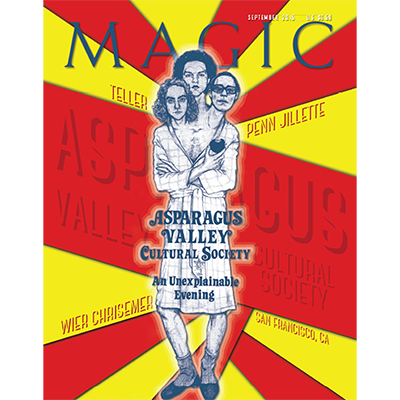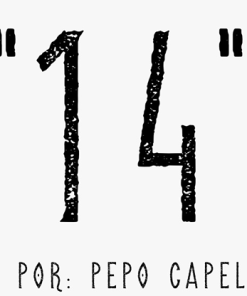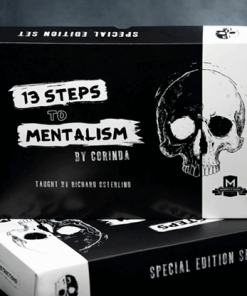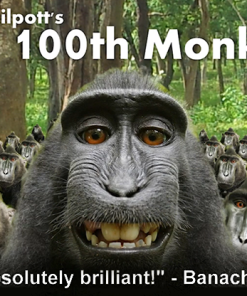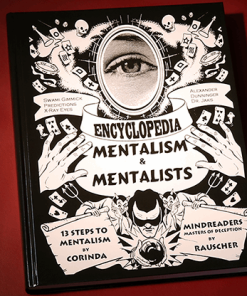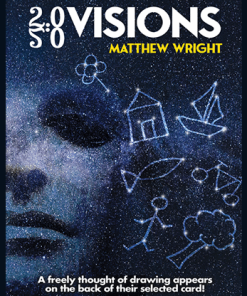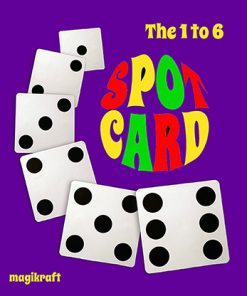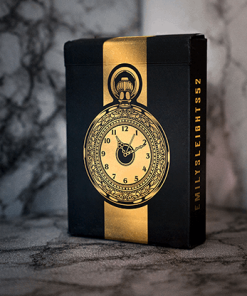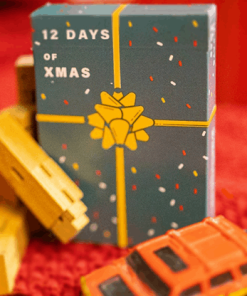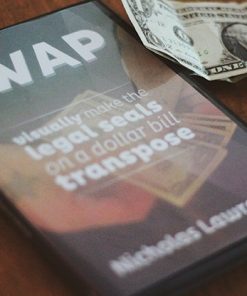Magic Magazine “Asparagus Valley Cultural Society” September 2015 – Book Murphy’s Magic Supplies, Inc.
$ 10,95 $ 6,57
CONTENTS
SEPTEMBER 2015
VOLUME 25
NUMBER 13
Asparagus Valley Cultural Society
By Nicky Ramos-Beban and David Cox
Forty years ago, a team was formed from a magician, a juggler, and a musician. Teller, Penn Jillette, and Wier Chrisemer joined together to become the Asparagus Valley Cultural Society. Four years later, the disparate trio embarked on an open run in San Francisco, changing their lives and making a name for themselves in entertainment.
Six
By Jaq Greenspon
When Michael “Six” Muldoon makes a sixth finger appear on his left hand, it’s there to stay. Yet while the appendage earned him his nickname, it is not the most interesting thing about this New York close-up worker.
Tips to Become a Pro Magic Lecturer
By David Stone
David Stone remains one of the busiest lecturers on the international magic convention and club circuit. His tips and advice on how to make a lecture tour survivable as well as profitable provide valuable insight for anyone who wishes to teach magic to other magicians.
Plus Updates on…
- Magic series currently on television.
- SAM in Philadelphia.
- IBM in Jacksonville.
- A remembrance of Lee Grabel.
- MAGIC Magazine “Conventions at a Glance.”
Bonus Content for the September Issue…
- Performance videos of Michael “Six” Muldoon.
- Video tutorial of Two Ton Triumph from Six.
- Video tutorials from Daryl’s Master Class: Cups & Balls DVD
- All fifteen of the products reviewed in the September issue, plus 477 reviews from previous issues, are all now available at the fully searchable “Marketplace” section of M360.
Marketplace
Fifteen products are reviewed this month by Peter Duffie, Gabe Fajuri, Jared Kopf, Francis Menotti, John Wilson:
Loops Improved by Yigal Mesika
The Clover Project by Brian Kennedy & Carl Campbell
Miracle Prediction Chest by Hand Crafted Miracles, Dannicus, and Mark Southworth
The Freedom Writer by Mark Allen
Red Mint by Victor Sanz
Diception by Chris Congreave
The Spiritual Stage by Roger Blakiston
Triage by Danny Weiser and Shin Lim
Ring Through Laces by SMagic Productions
Chap Switch by Nicholas Lawrence and Sans Minds Magic
Nanomagics by Roman Garcia
Fishing by G Alexander
Kling Klang by Judson Cole
6 Minutes by Matt Fore
The Vault by David Penn
In One: Joseph Barry
A young magician from Stoke-on-Trent, England, Joseph Barry loves all types of magic but chose to study cards in depth. He has a particular fondness for gambling moves and effects, as well as card magic that is not only subtle and baffling but also impromptu. Having become known not only for his trick creations but for his skill as an entertainer, Barry has been appearing at magic gatherings around the world, and completed a lecture tour of Japan earlier this year. The following items are just a few from his growing repertoire: LLL Peek, STOCAN (Simple Thought-Of Card at Number), Freedom Stacking, and Thanks to Vernon.
First Look: Card Party
Lewis Jones
Now ninety years old, London-based Lewis Jones has been involved with magic for most of his life. Originally from Newcastle-upon-Tyne, England, Jones attained a degree in Modern Languages from Cambridge University. Upon graduation, he became a writer of dramatic scripts and short stories for BBC radio and, later, television. His work includes scripts for several BBC science series. Jones’ conjuring creations have included card magic as well as mental mysteries, often involving cryptography and mathematical methods. These two effects – HASTERIX and The Rule of Three – are excerpted from Jones’ latest publication, Card Party, his seventeenth book of magic.
First Look: Master Course – Cups & Balls
Daryl
Daryl has been billed as “the magicians’ magician.” He’s earned his reputation over the course of a career that has seen him win numerous awards, including the Academy of Magical Arts Close-up Magician of the Year in 1980 and 1981, Parlor Magician of the Year for 1986 and 1987, and Lecturer of the Year, 1988 and 1992. He was also awarded First Place in Card Magic at FISM 1982 in Lausanne. These excerpts from the Master Course: Cups & Balls videos in Murphy’s Magic “Essentials in Magic” series explain Charlie Miller’s Move, an Elimination Sequence, and Daryl’s Cup & Ball Routine.
Finn Jon’s Esoterica: Magnetic Fingers
Finn Jon
The magician offers to demonstrate that his fingers have “special qualities.” He borrows a straw and shows that it has a center of mass in the middle by balancing it on his finger. Then he is able to move the center of mass back and forth at will, and the straw seems to cling to the magician’s fingers as if magnetic. He then demonstrates that his fingers can become a “force field” in which the straw can float freely for a short time. This is my very latest development using threads, which is funny, because the effect is very similar to my very first creation. The trick is best done very close-up, preferably for a single spectator who is allowed to see the miracle only a few inches away.
Loving Mentalism: Venus Mind Trap
Ian Rowland
This month’s effect is a simple yet powerful bit of informal close-up mentalism that you can perform just about anywhere for just about anyone. You ask someone to just think of any song they happen to like. You cause a few strange things to happen in their mind, which they honestly report feel a bit weird, and then, to round things off, you successfully name the precise song they happen to be thinking of. That’s it! This also works with favorite movies or just about anything else you want. Of course, there’s some secret, sneaky stuff going on, but there’s zero chance of anyone finding out how you did it.
Bent on Deception: George Washington’s False(hood) Teeth
Mike Bent
One item on my “to get to” list has been a Lie Detector routine. I love the concept. It’s a very funny premise, but I had a couple of problems with it. For adults, it just didn’t fit my style. But I thought it could work for kids – if I could find a way to do the trick without making the kid be the liar. I thought that if I picked the wrong kid, I could have a disaster on my hands. I’ve seen others do it and do it well, but I just really didn’t want to go there. Also, I thought that the lie detector’s loud buzzing sound could be a problem, especially with very small children. For a while, I couldn’t get past these problems. But then inspiration came along in the unlikely form of a classic joke store item: Yakity-Yak Teeth.
The Monk’s Way: Monk’s Double Departure
Steve Reynolds
The stack of “Monk’s Way” articles is getting some height and each has been pretty heady – and this installment may be no different. However, let’s have some fun by asking this question: How would Brother John Hamman tackle a Marlo trick? I don’t know the answer, but this is my inspired guess. In this effect, a card is selected and sandwiched between two Kings. It vanishes and appears in the deck. This is then repeated.
Classic Correspondence: Benjamin Fuller to Charles Carter
Mike Caveney
A magician did not write this lengthy letter, but the author was far from being a layperson. Benjamin Fuller was born into a theatrical family in 1875. His father opened a series of lantern shows and waxworks displays that also incorporated vaudeville acts, with Ben appearing as a comedian. Ben later opened additional venues in New Zealand and built a thriving vaudeville circuit. On February 14, 1933, magician Charles Carter sent his friend Ben Fuller news of the contract he had entered into with Chicago’s Century of Progress. The letter spent a full month at sea, traversing the 7,400 miles between San Francisco and Sydney, including a stop in Hawaii for the ship to take on provisions. By the time Sir Ben read the news, the foundation for Carter’s Temple was already being poured at the fairgrounds in Chicago. With plenty of his own news for Carter, Sir Ben fired up his Dictaphone and started a long, rambling monologue that his secretary would then transcribe into four typed pages.
For What It’s Worth: “But It Went So Well in Rehearsal….”
Mark Kornhauser
The most fundamental responsibility of the performer is to guide the consciousness of the audience. Unfortunately, this is a subtle aspect of performance that is only learned through time onstage. No one can rehearse in the same state of consciousness as an actual performance. When you’re offstage, you can’t experience the state of onstage consciousness. You can try to imagine an audience, but it’s not the same.
Walkabout Soup: A Day in the Life at the German Cabaret
Simon Coronel
Back in 2012, I received the news that I’d been booked for a four-month-long gig at a variety theater in Germany. In the months between confirming the contract and actually doing the gig, I wondered what it would be like. I’d never done a run of shows that long and all-consuming before, and the day-to-day life of a fulltime variety performer was something I knew nothing about. I’d imagined drama, glamor, and chaos. While there were definitely moments of all three, the reality was far more mundane, yet somehow better for it. This is what a day in the life at the German cabaret looked like.
Your Stories: Not Quite Tonight
Tina Lenert
When I started working on “Mr. Mopman” in 1985, I had no idea where it might lead me, but I did have two dream destinations: Milt Larsen’s It’s Magic show, which finally happened for me in 1997, and Johnny Carson’s Tonight Show, which never happened – but therein lies a story.
| Default Title | Default Title |
|---|
Fast shipping and professional packing
Because of our long-standing relationship with UPS FedEx DHL, and other major global carriers, we are able provide various shipping options. Our warehouse personnel will pack each item according to our strict specifications. Prior to shipping the goods are thoroughly inspected and secured. Every day we ship hundreds of packages to our customers across many countries. The fact that we're dedicated to becoming the largest online retailer in the world is evident. The warehouses and centers of distribution are in Europe and the USA.
Note that orders containing more than one item are processed according to the particular item.
We will inspect each and every one of the products before they are shipped. Today, the majority orders will be shipped within 48 hours. The delivery time will be between 3-7 working days.
Returns
The stock market is always changing. It's not entirely managed by us, since we are involved with multiple organizations, such as the factory and the storage. The actual levels of stock can change at any time. Please understand it may happen that your order is out of stock when the order has been placed.
Our policy runs for a period of 30 days. However, if the 30 days have elapsed from the date you purchased the product, we are unable to give you a refund or exchange.
For your item to be eligible for return, it must be unopened and in the condition you received it in. It should also be in the original packaging.
Related products
Playing Cards
2021 Summer Collection: Mountain Playing Cards by CardCutz Murphy’s Magic Supplies, Inc.
